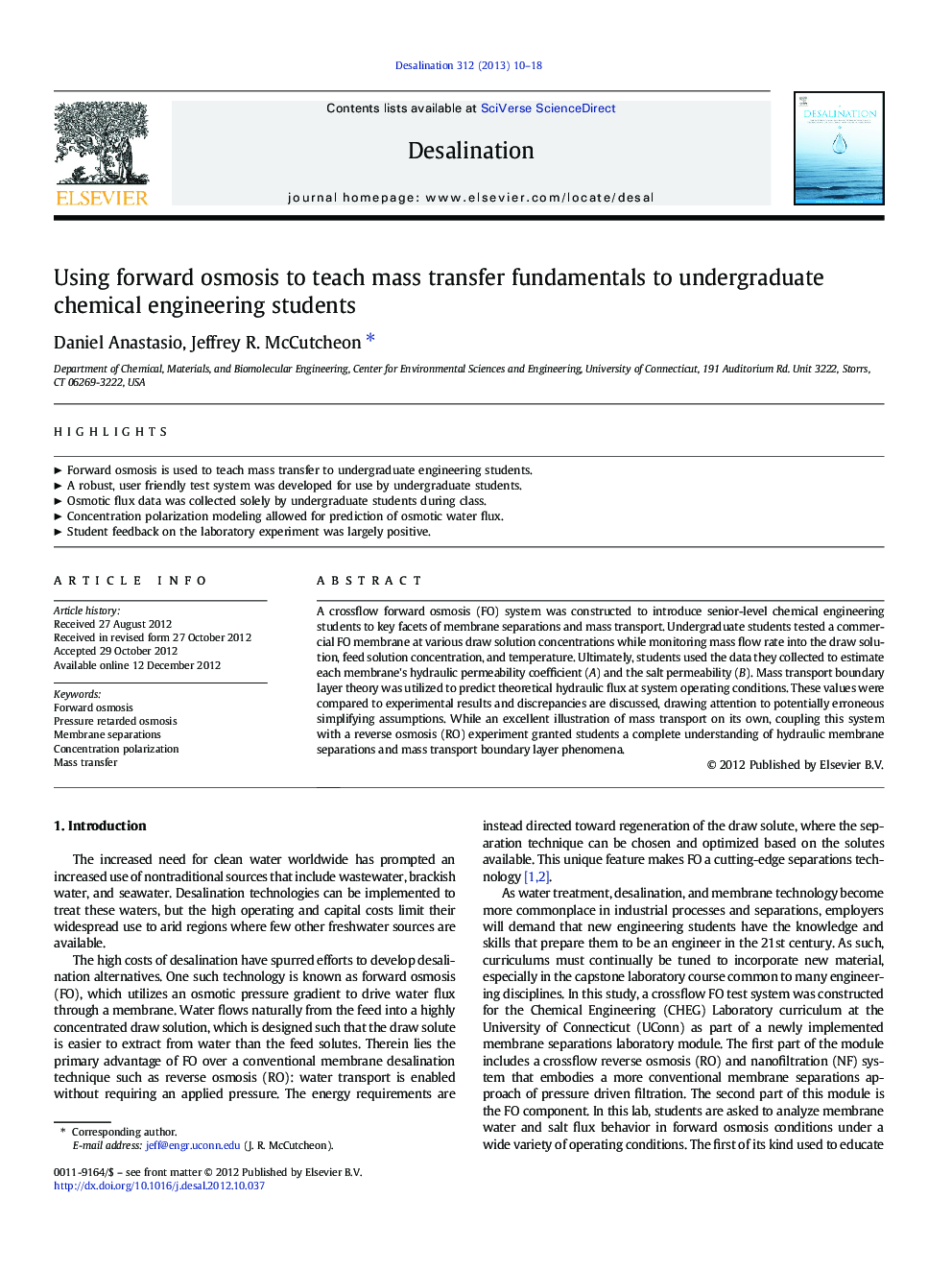| کد مقاله | کد نشریه | سال انتشار | مقاله انگلیسی | نسخه تمام متن |
|---|---|---|---|---|
| 624027 | 1455379 | 2013 | 9 صفحه PDF | دانلود رایگان |

A crossflow forward osmosis (FO) system was constructed to introduce senior-level chemical engineering students to key facets of membrane separations and mass transport. Undergraduate students tested a commercial FO membrane at various draw solution concentrations while monitoring mass flow rate into the draw solution, feed solution concentration, and temperature. Ultimately, students used the data they collected to estimate each membrane's hydraulic permeability coefficient (A) and the salt permeability (B). Mass transport boundary layer theory was utilized to predict theoretical hydraulic flux at system operating conditions. These values were compared to experimental results and discrepancies are discussed, drawing attention to potentially erroneous simplifying assumptions. While an excellent illustration of mass transport on its own, coupling this system with a reverse osmosis (RO) experiment granted students a complete understanding of hydraulic membrane separations and mass transport boundary layer phenomena.
► Forward osmosis is used to teach mass transfer to undergraduate engineering students.
► A robust, user friendly test system was developed for use by undergraduate students.
► Osmotic flux data was collected solely by undergraduate students during class.
► Concentration polarization modeling allowed for prediction of osmotic water flux.
► Student feedback on the laboratory experiment was largely positive.
Journal: Desalination - Volume 312, 1 March 2013, Pages 10–18